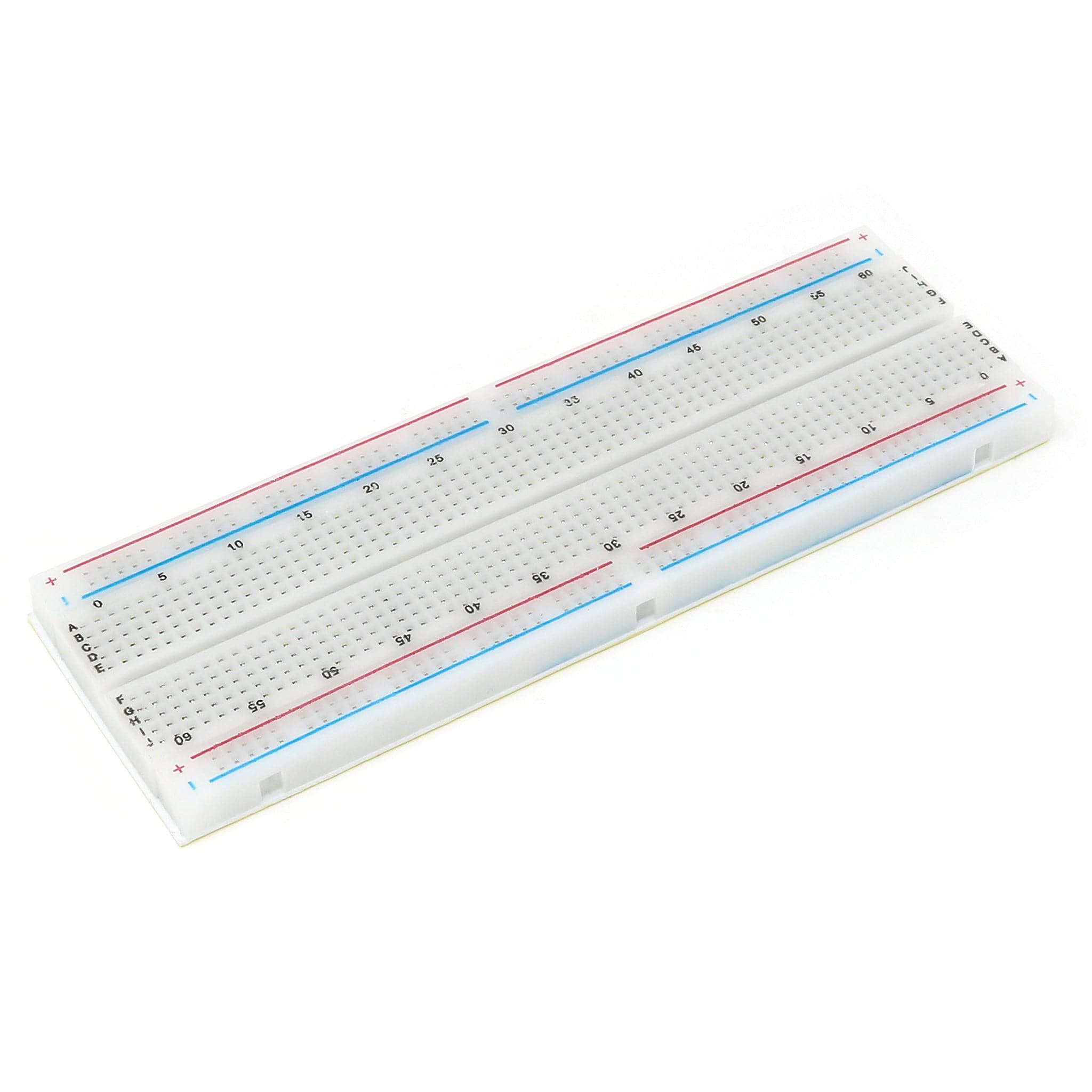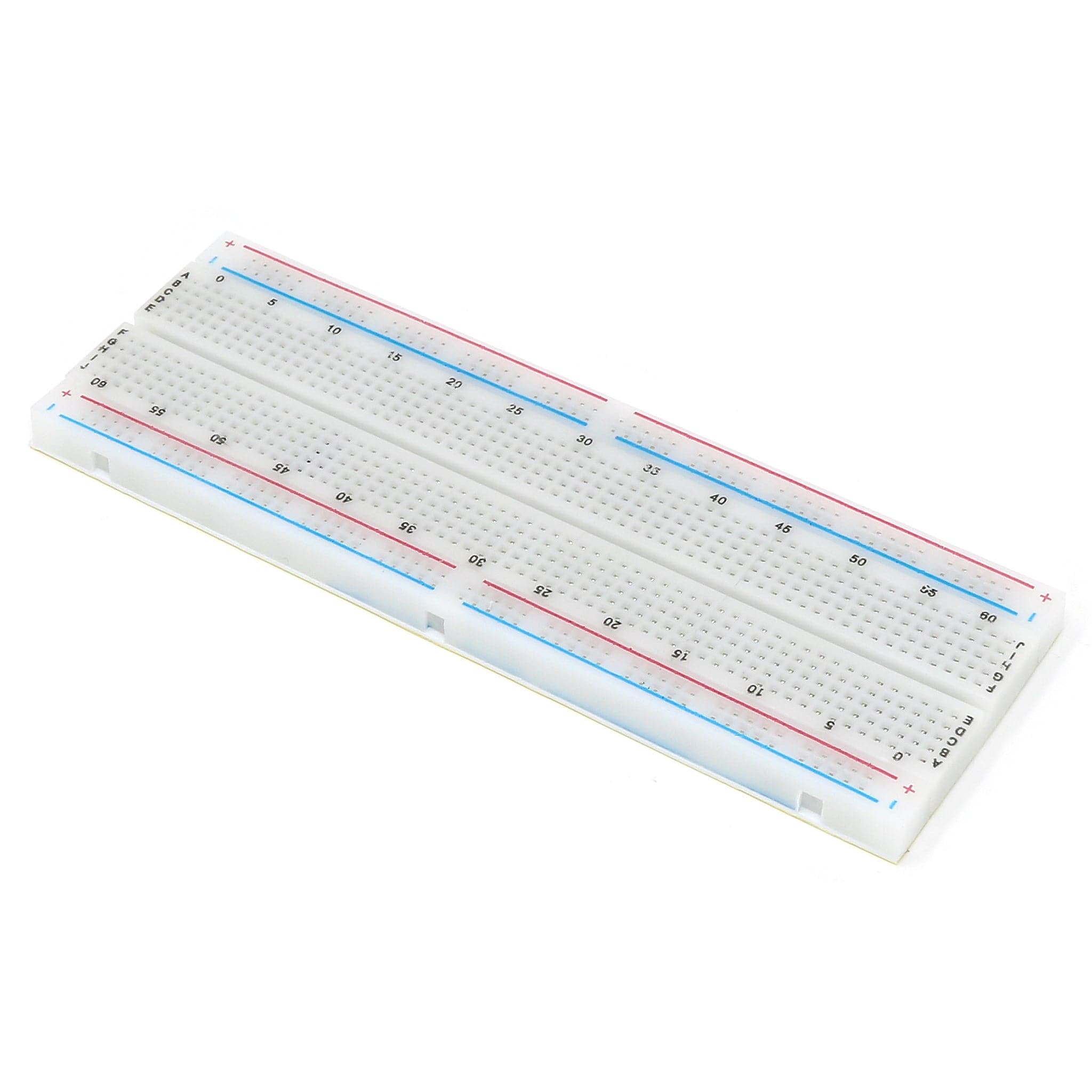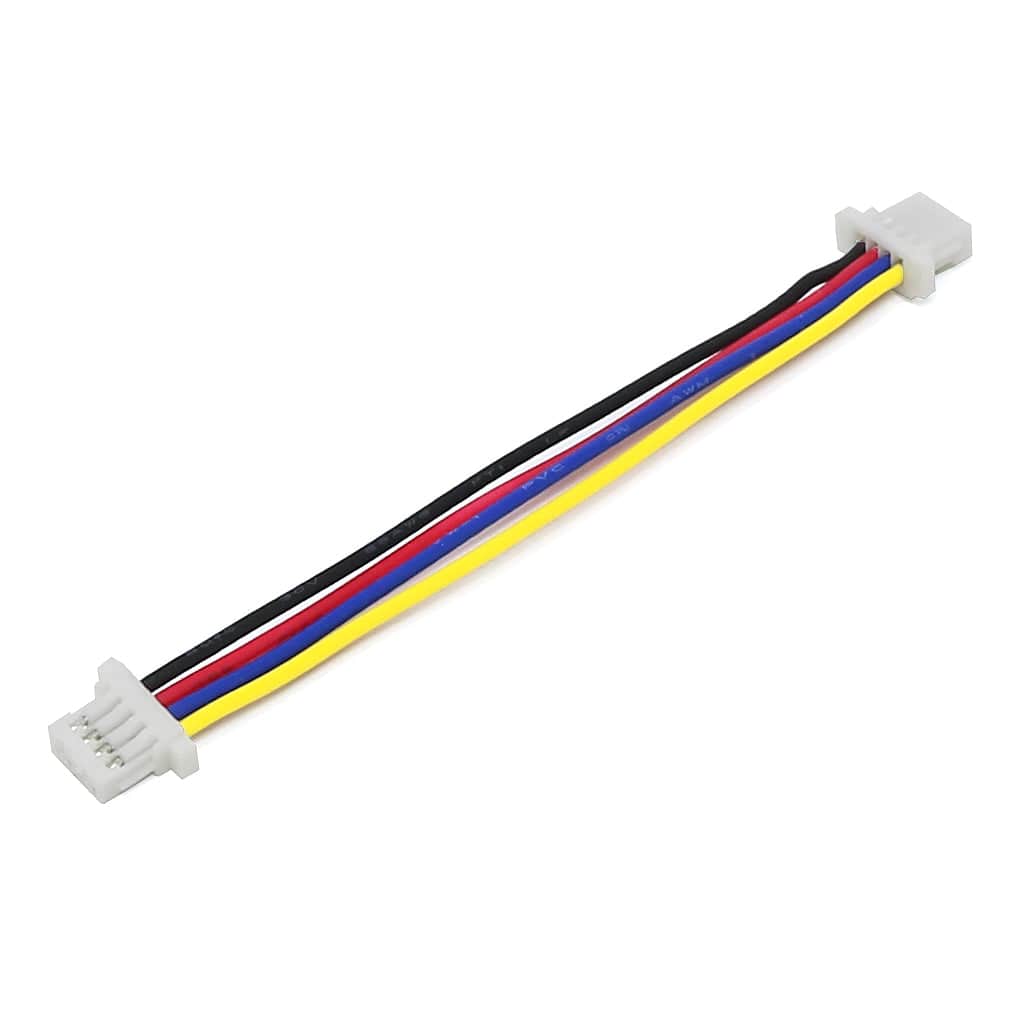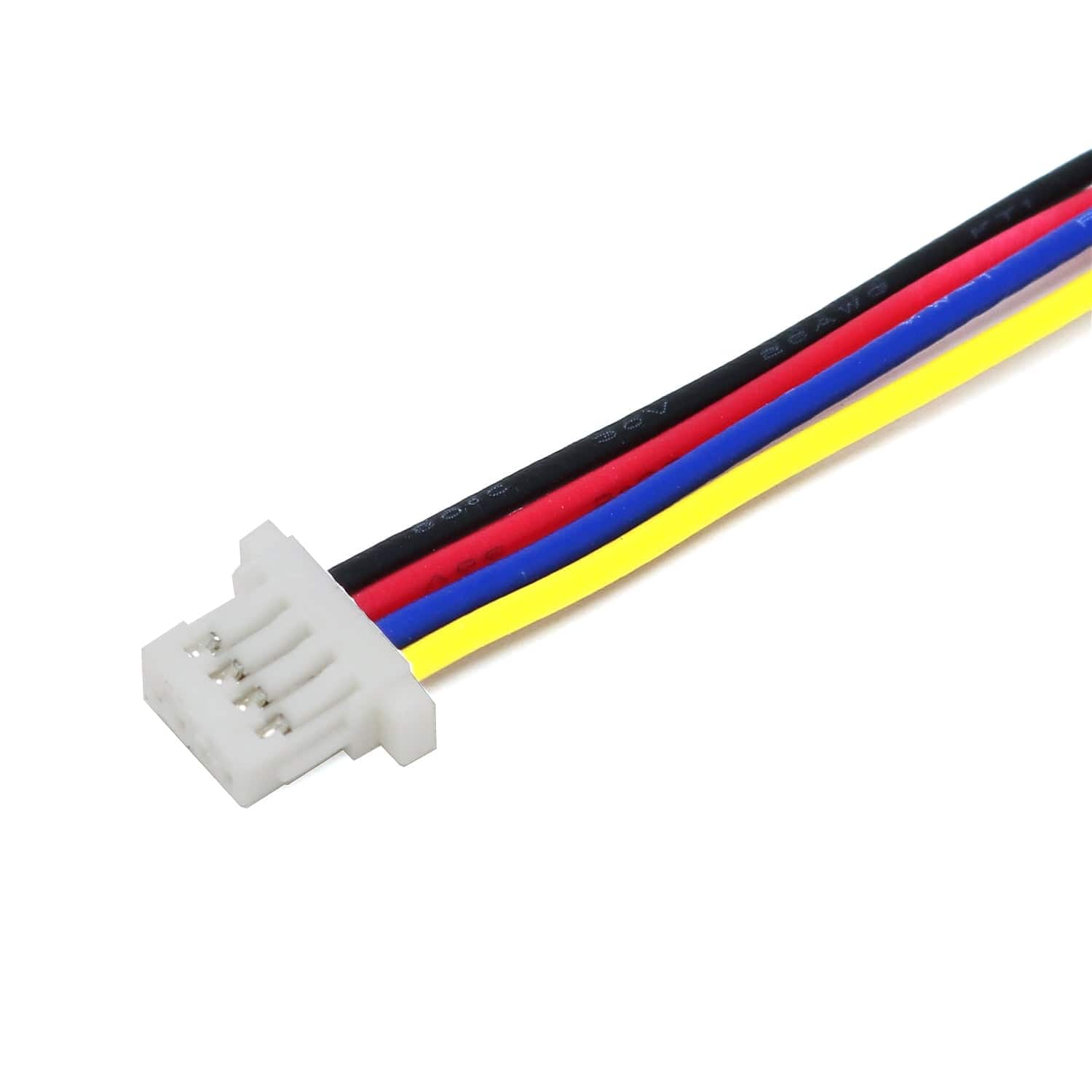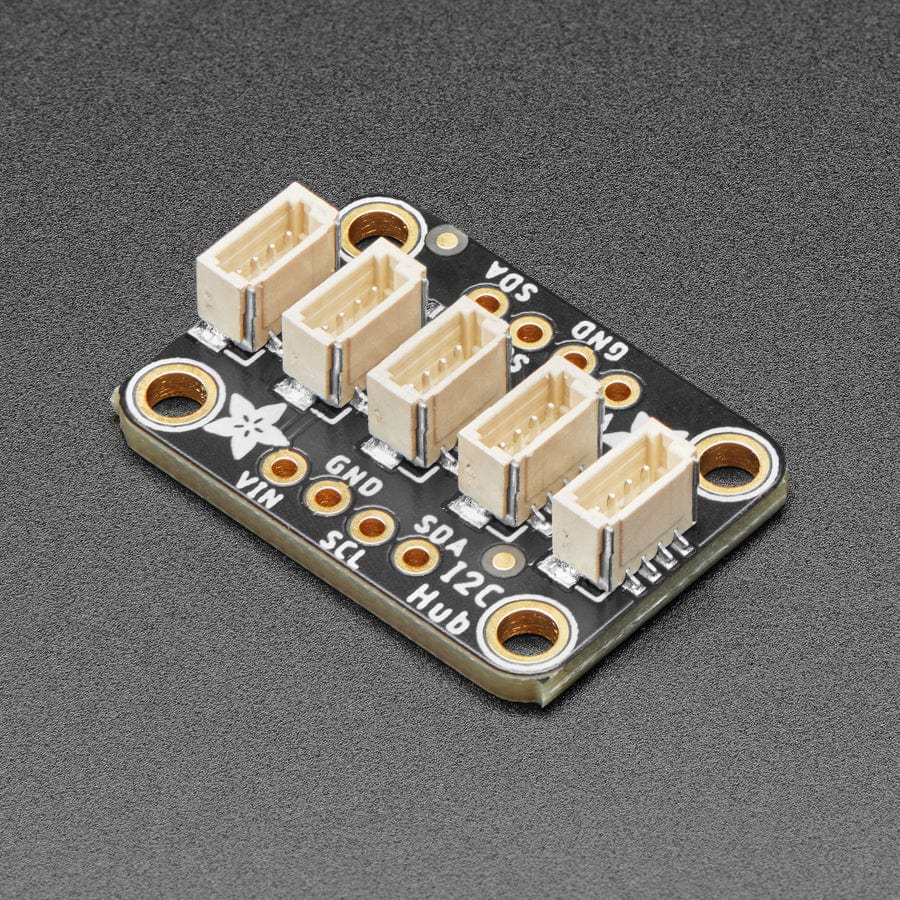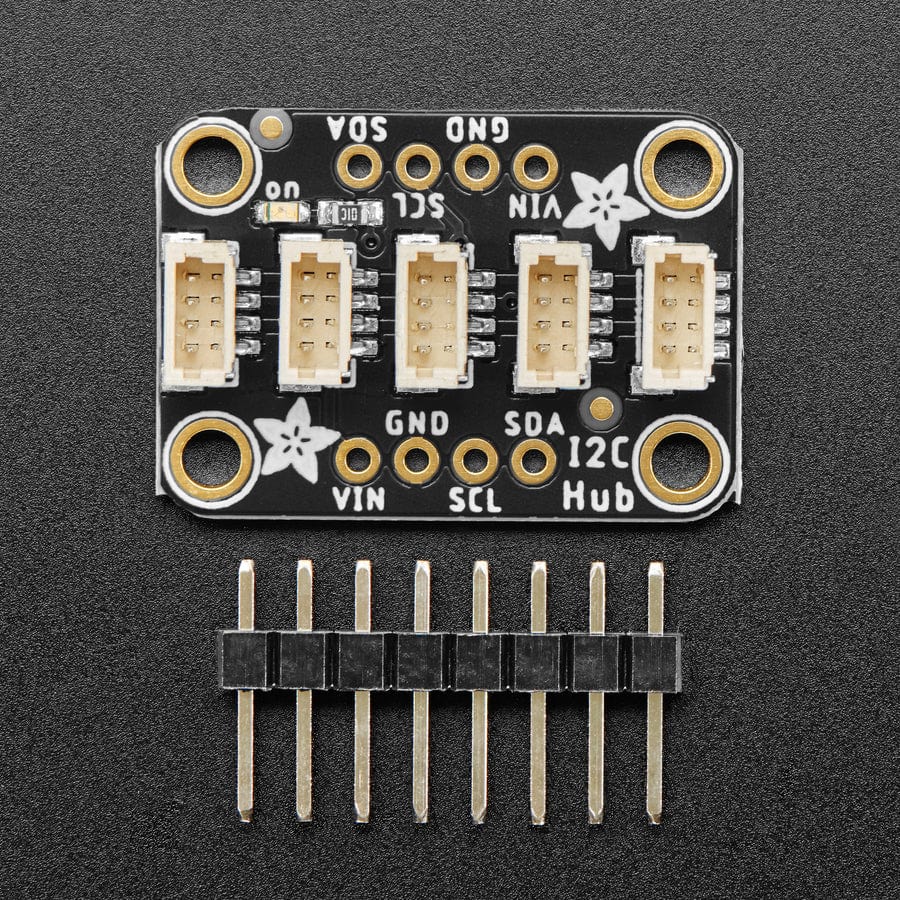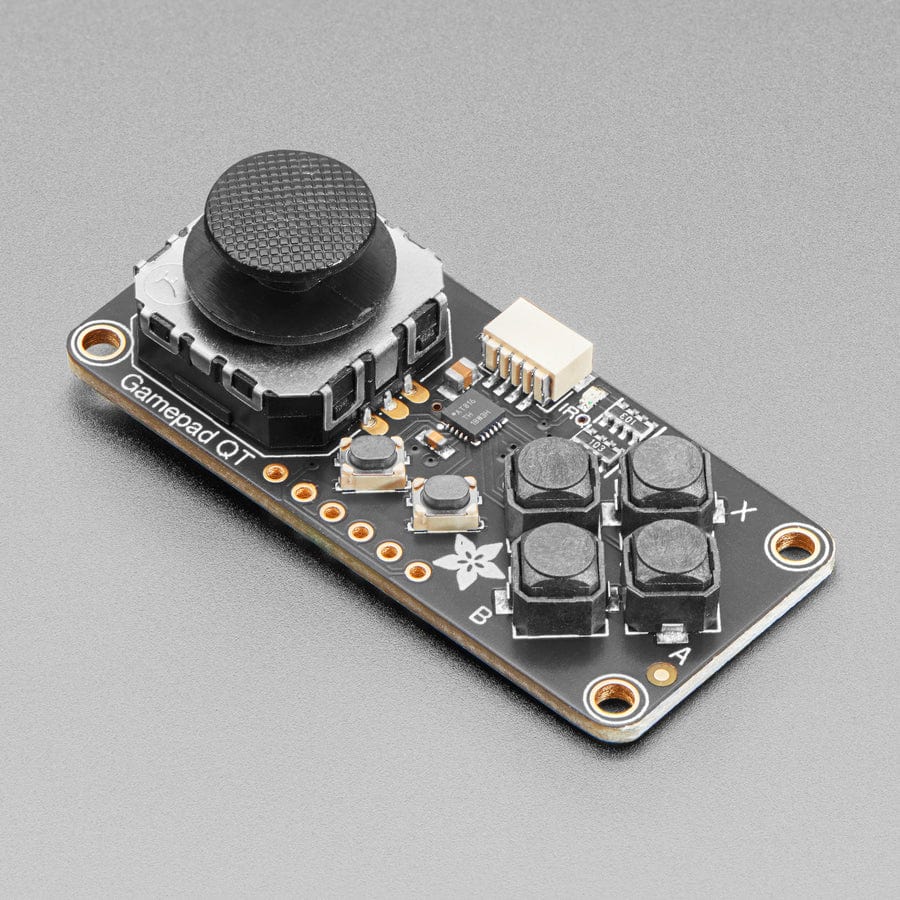
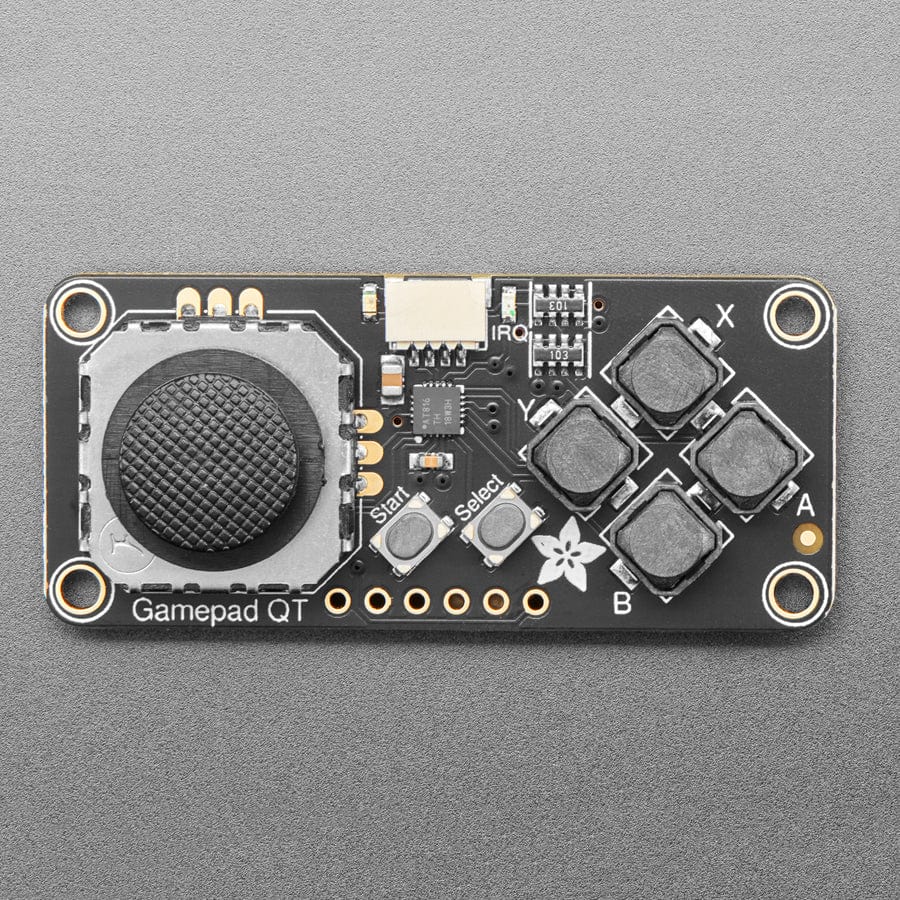
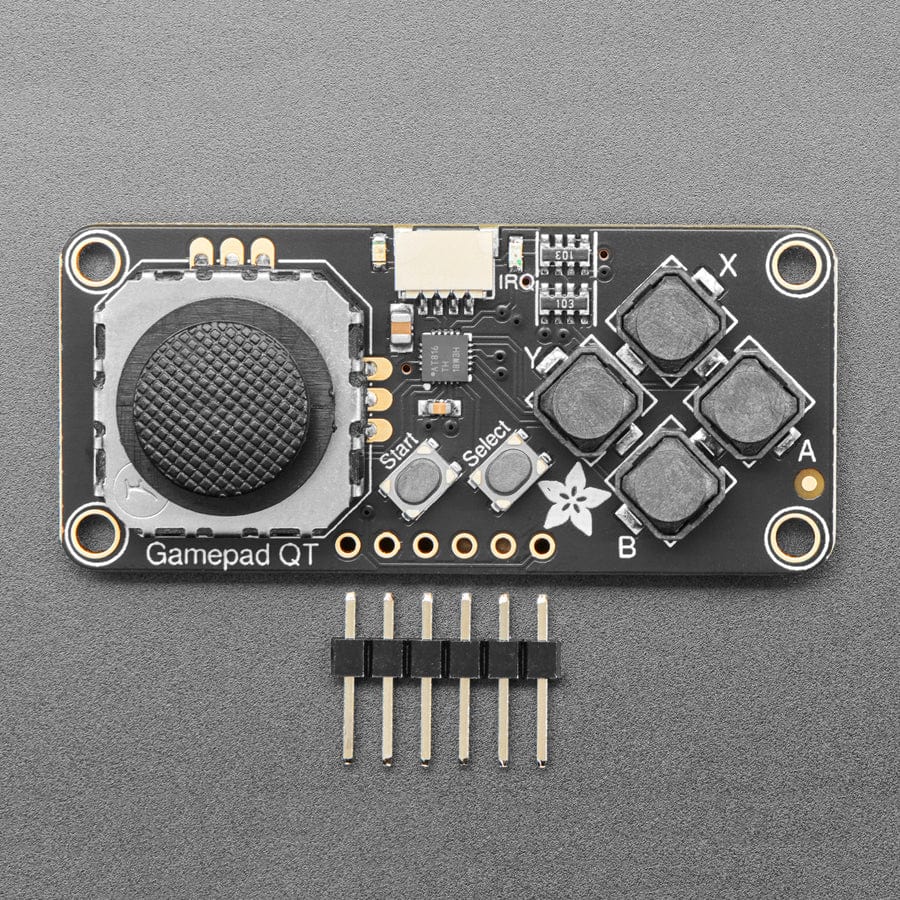
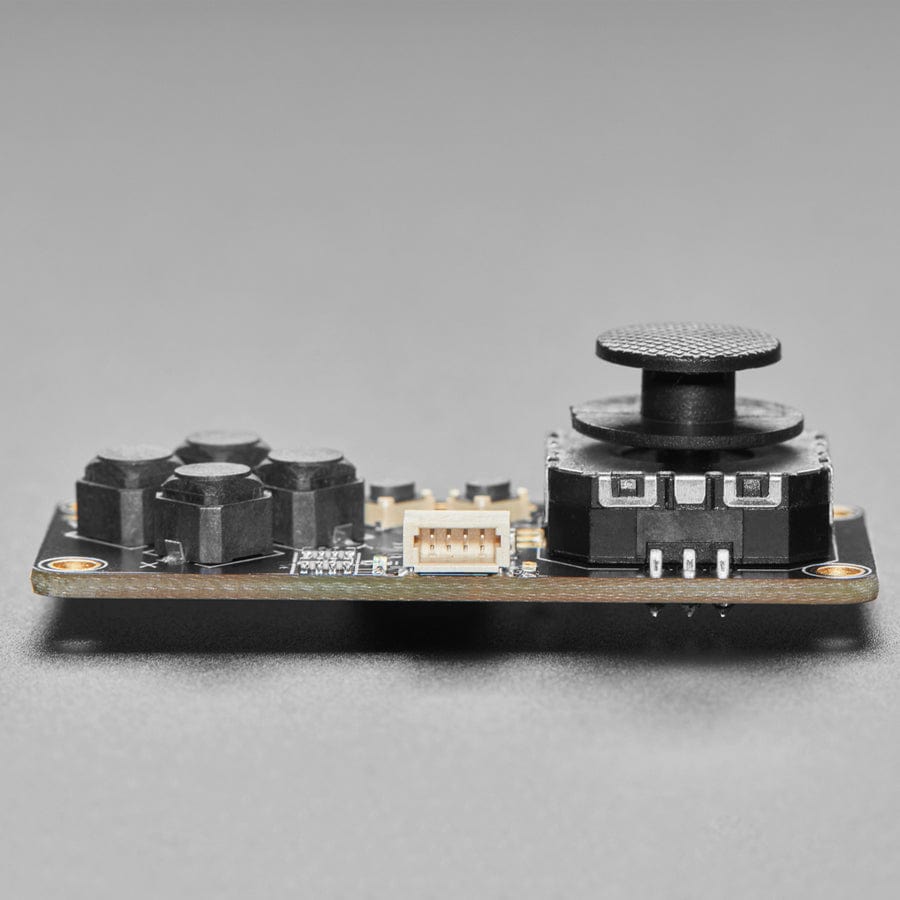
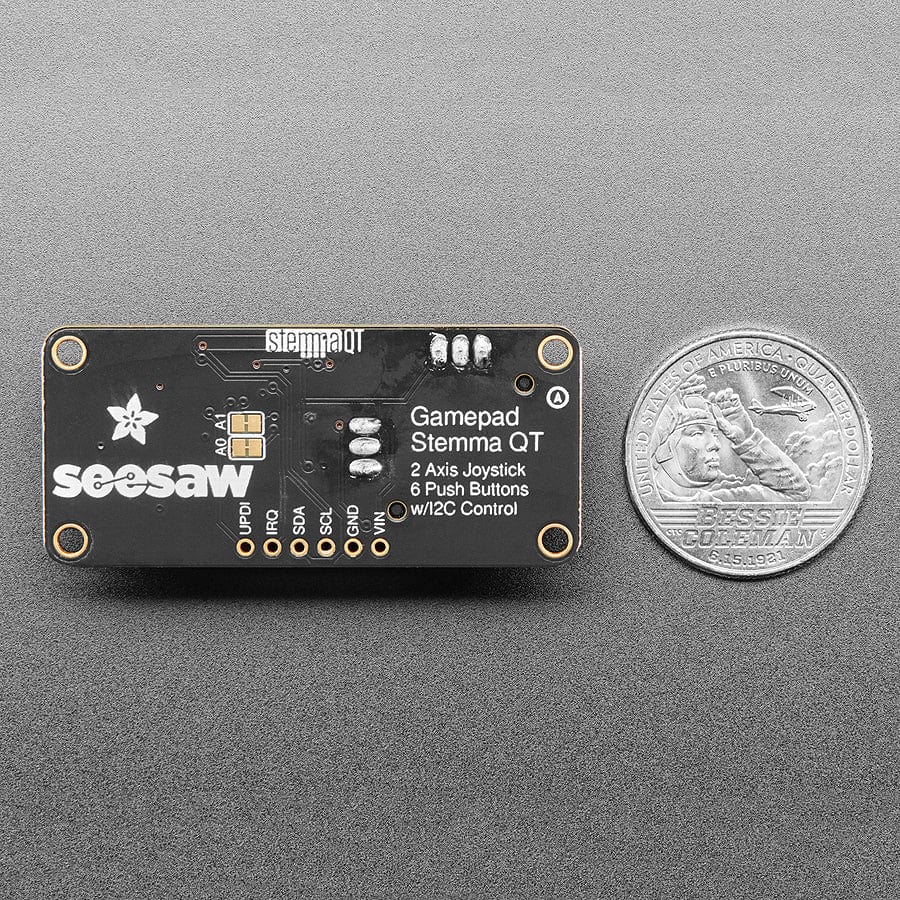
Login / Signup
Cart
Your cart is empty
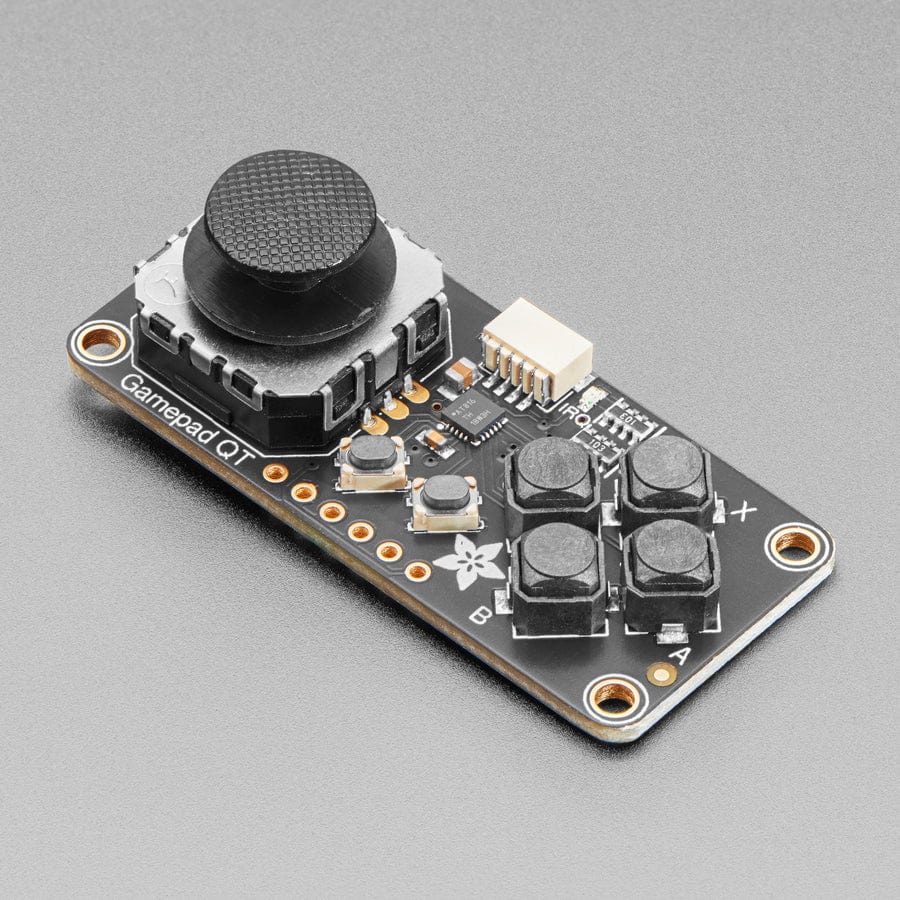
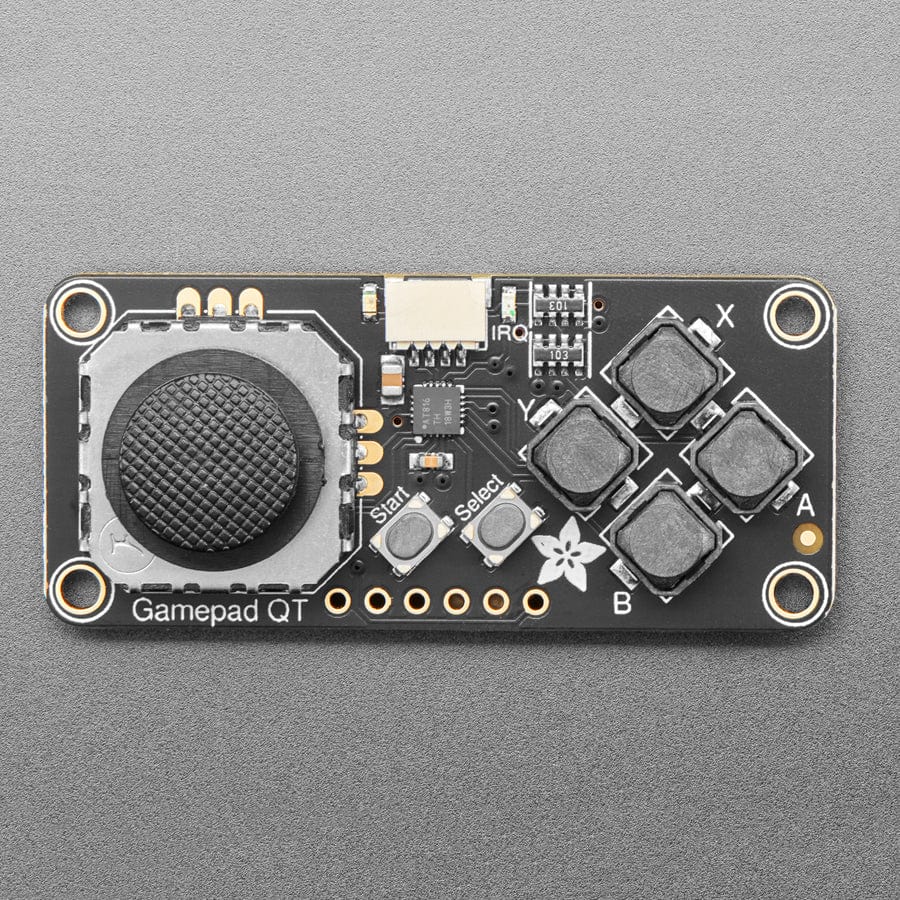
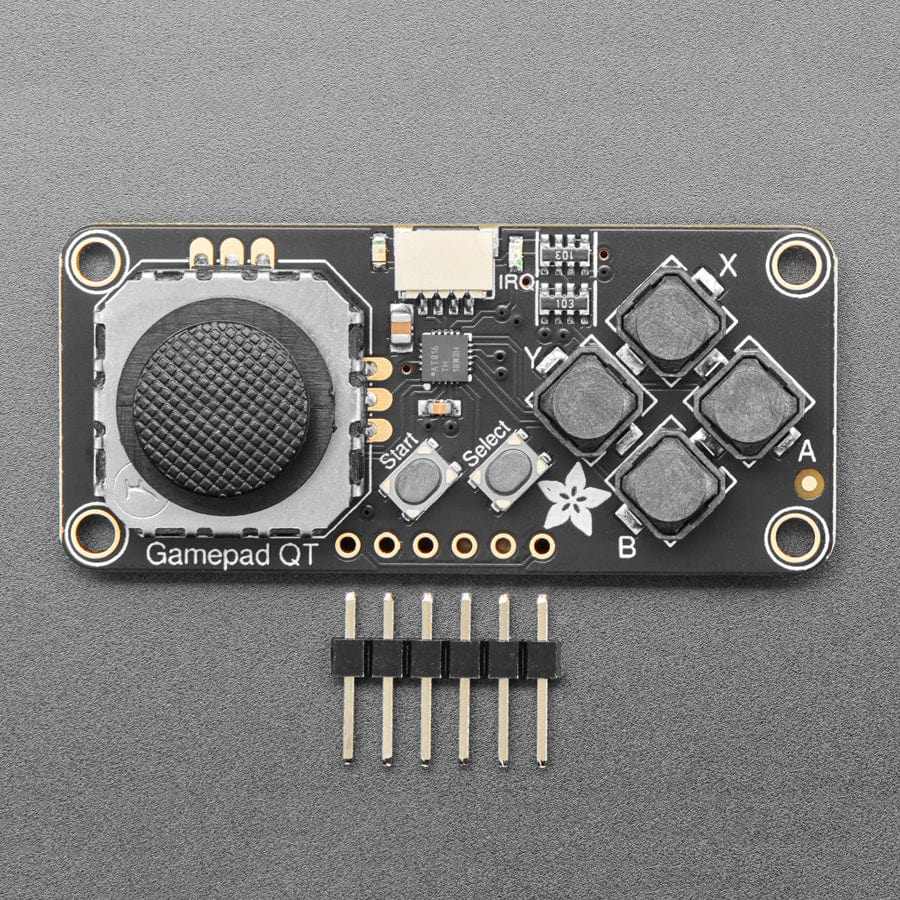
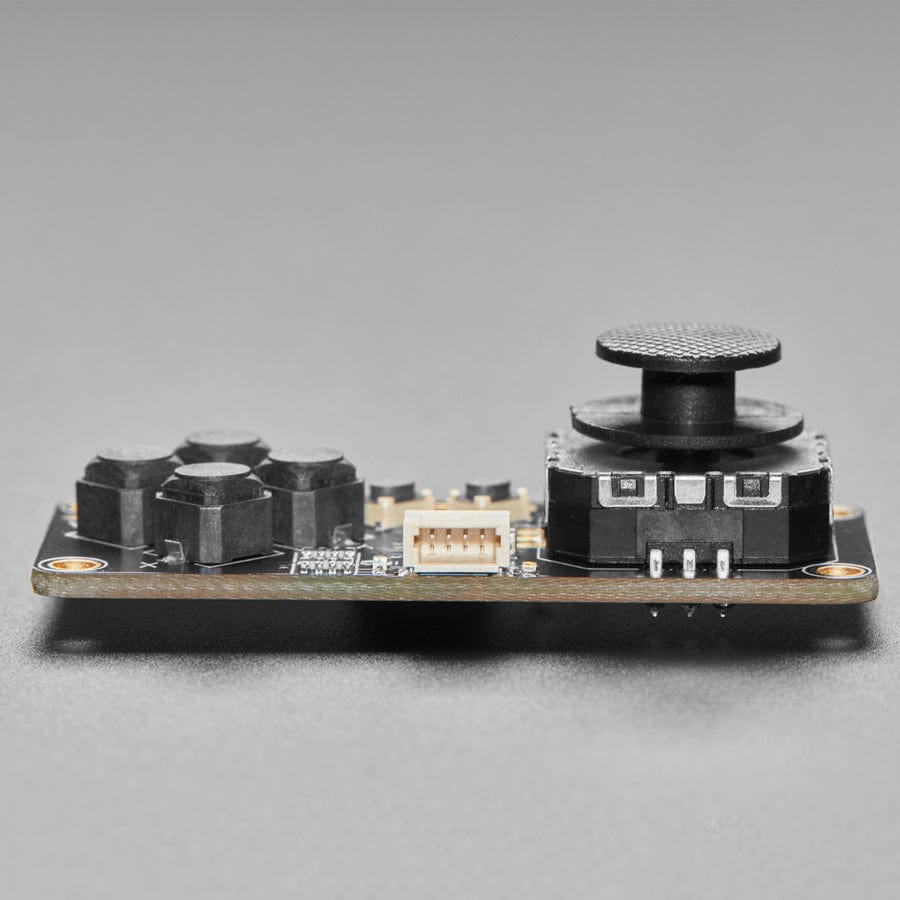
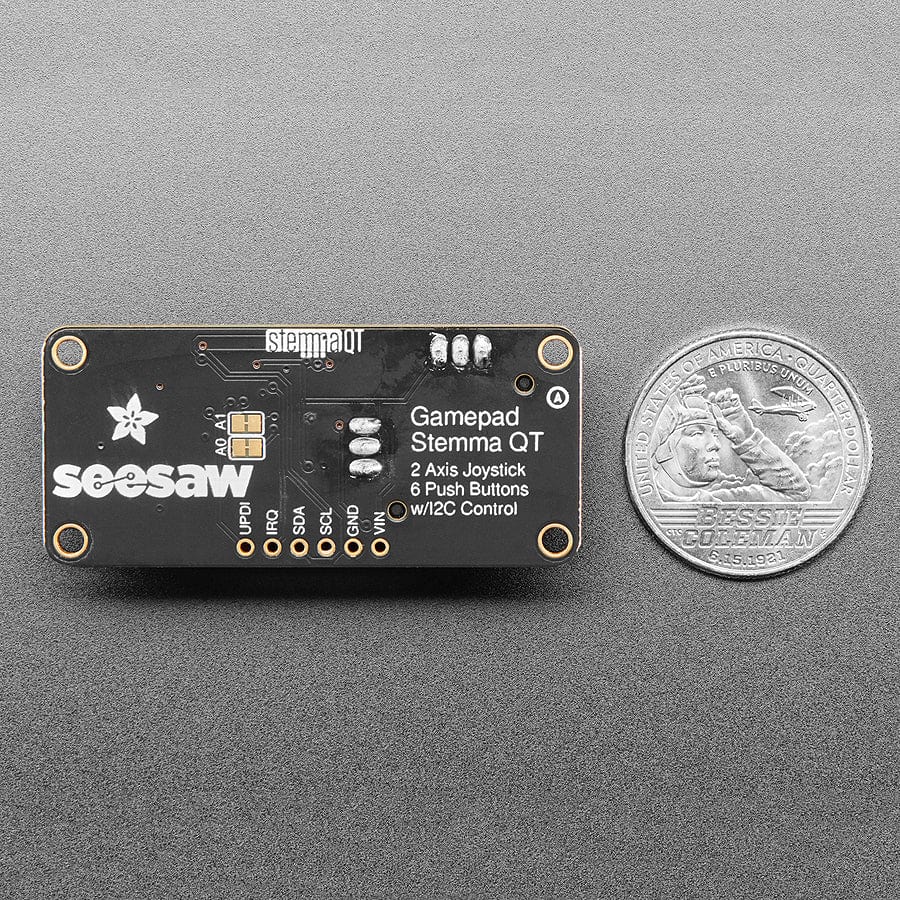
Make a game or robotic controller for any I2C microcontroller or microcomputer with this tiny gamepad breakout board. This design has a 2-axis thumb joystick and 6 momentary buttons (4 large and 2 small). The board communicates with your host microcontroller over I2C so it's easy to use and doesn't take up any of your precious analog or digital pins. There is also an optional interrupt pin that can alert your feather when a button has been pressed or released to free up processor time for other tasks.
You can use our Arduino library to control and read data with any compatible microcontroller. We also have CircuitPython/Python code for use with computers or single-board Linux boards.
To get you going fast, this board comes with a STEMMA QT connector, making them easy to interface with. The STEMMA QT connector is compatible with the SparkFun Qwiic I2C connectors. This allows you to make solderless connections between your development board and the gamepad or to chain it with a wide range of other sensors and accessories using a compatible cable and a 'hub' board. QT Cable is not included, but the shop has a variety.
This board features Adafruit seesaw technology - a custom-programmed little helper microcontroller that takes the two analogue inputs from the joystick, and 6 button inputs, and converts it into a pretty I2C interface. This I2C interface means you don't 'lose' any GPIO or analogue inputs, and it works with any and all microcontrollers or microcomputers - even if they don't have an analogue input for the thumbstick!
If you have an I2C address conflict or want to connect more than one of these to a board, there are two address-select jumpers so you have 4 options of I2C addresses.
There's an optional IRQ (interrupt) line that you can use if you'd like the gamepad to let you know when a button has been pressed. Since it's optional, you will need to connect a separate wire for the IRQ line, or just leave it disconnected.
Comes with one assembled and programmed Gamepad, and a 0.1" header. If you aren't using Stemma QT cables, some soldering is required to attach the header for breadboarding.






